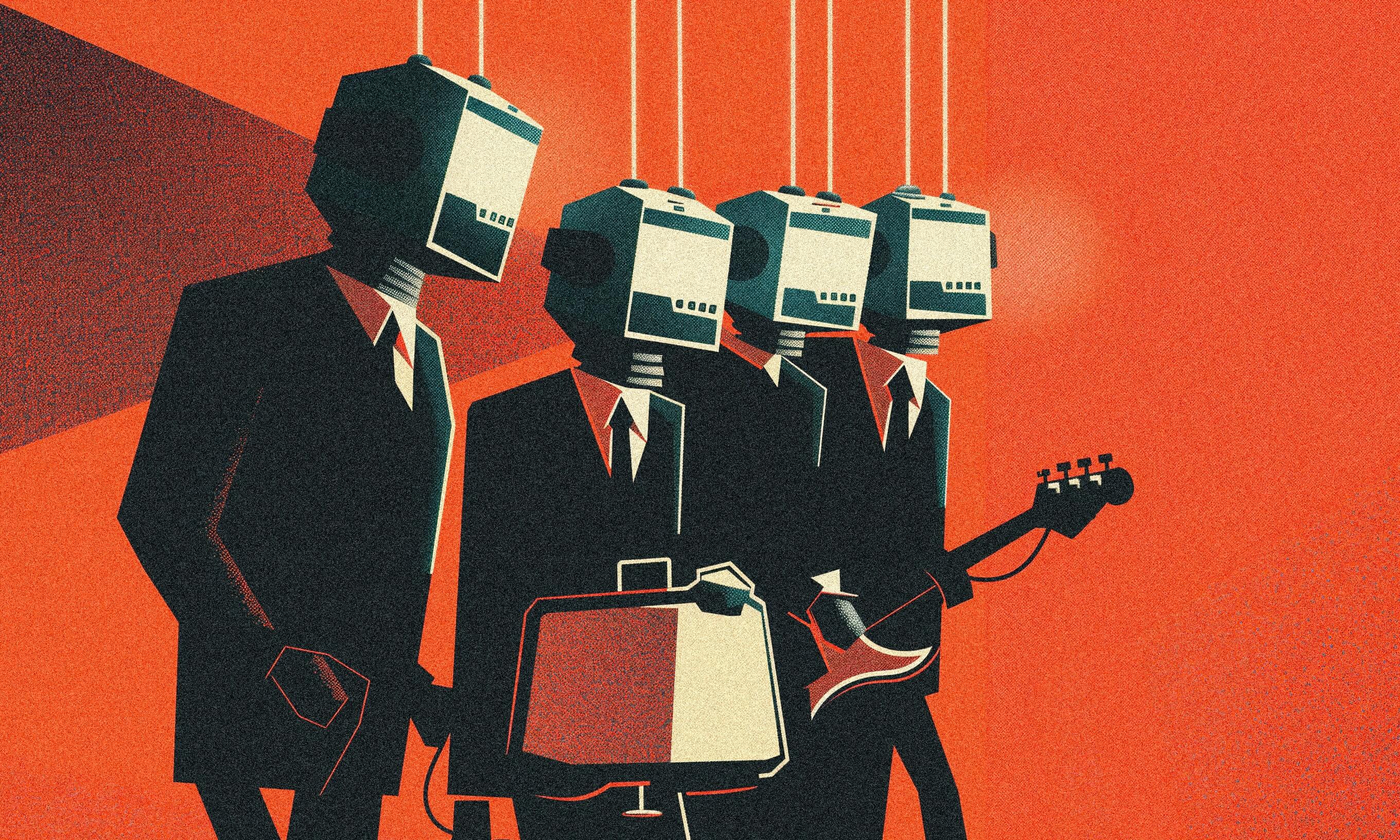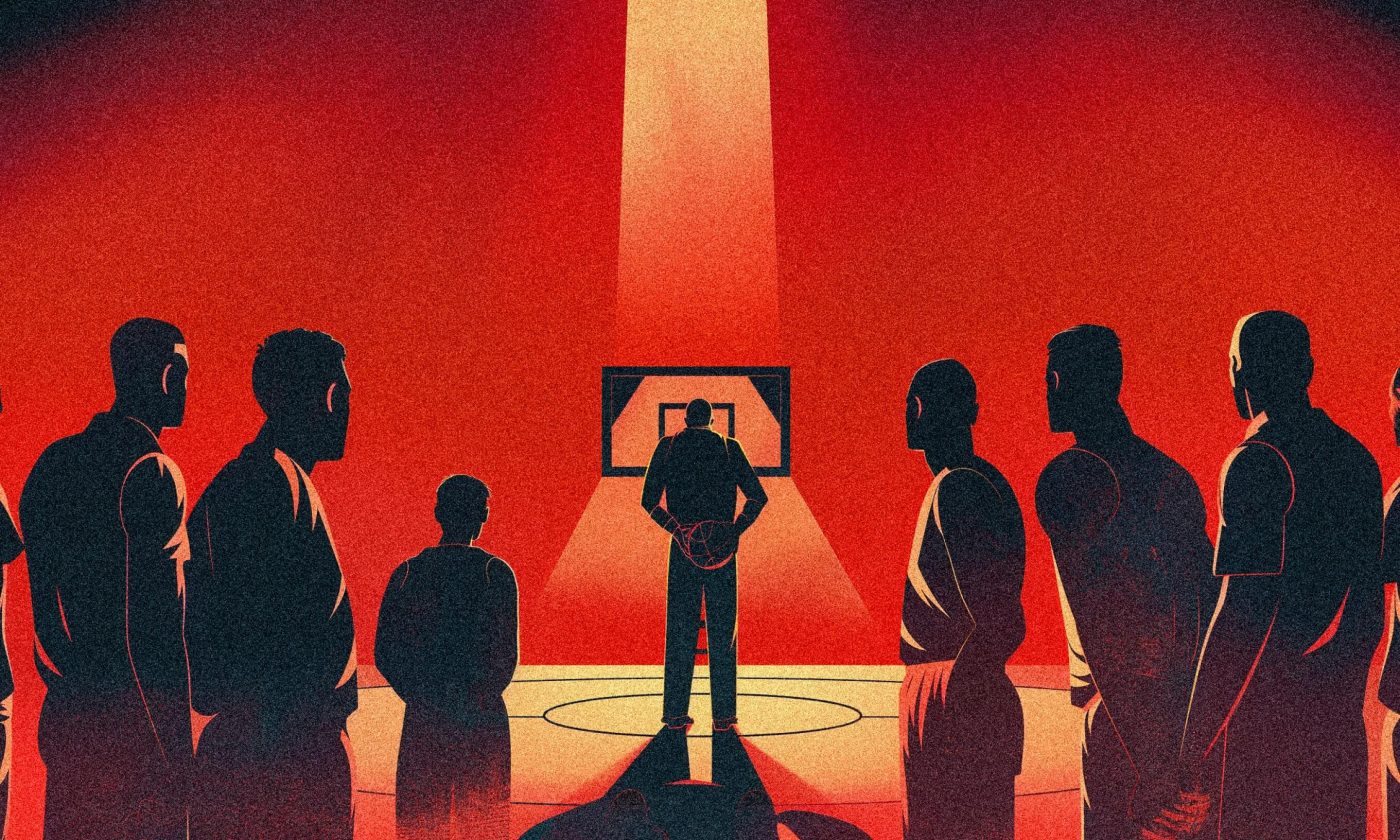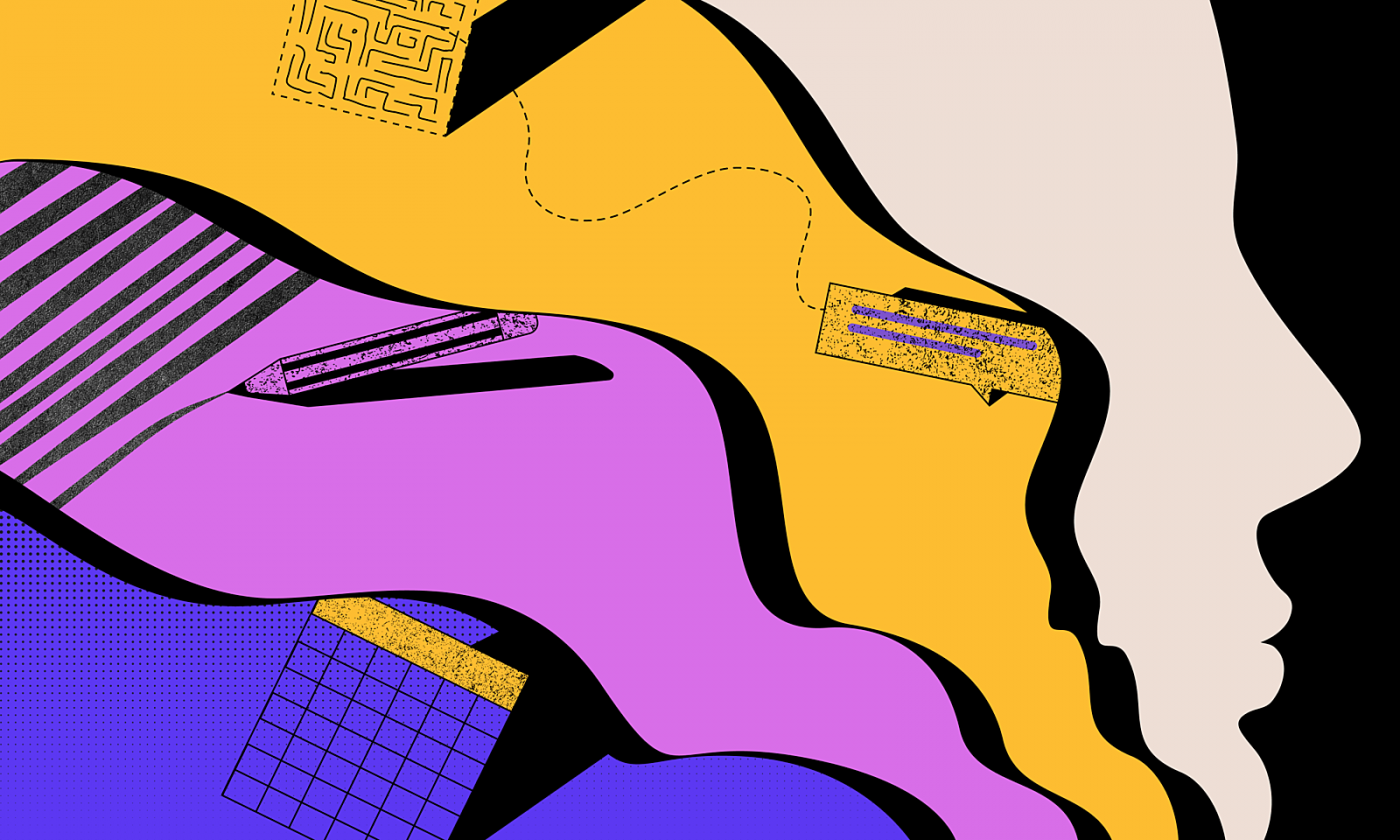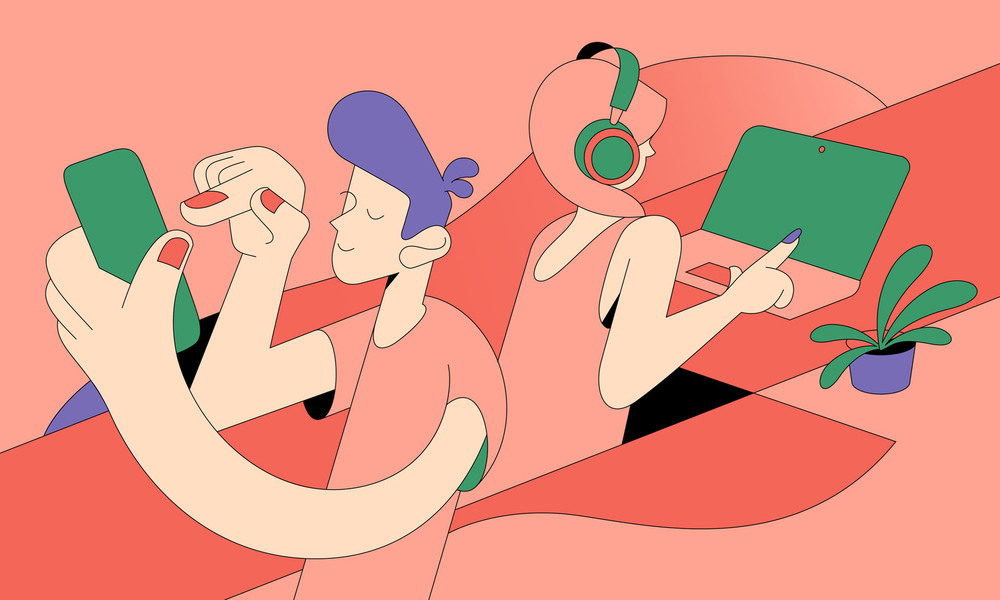Sixty years ago, America was sandwiched between the Stateside debut of the Beatles and the Stones, and the culture was changed forever. Author Rich Cohen examines how the blossoming of AI in 2024 echoes the 1964 British Invasion in surprising ways.
The spring of 1964 rumbled and reverberated like no spring before it. In America, it was a season wedged between the Beatles’ winter appearance on Ed Sullivan and the Rolling Stones’ first U.S. recording session at the start of summer in Chicago.
When Paul, George, John and Ringo kicked things off with a declaration that would overturn the status quo – I get high! I get high! I get high! – and Mick and Keith later tore into Muddy Waters’ “I Can’t Be Satisfied” at Chess Records, the timing was neither footnote nor incidental detail. The timing was crucial, even determinative, because the technology behind the music had been quietly revolutionized.
The cheap record player and the cheap vinyl LP, the megawatt A.M. radio stations, the television networks with their vast audience of aimless teens, the baby boomers – it was all firmly in place by 1964. It was a delivery system waiting to discover what it had been built to deliver. That turned out to be the Beatles and the catalog of English bands – the Kinks the Stones, Herman’s Hermits, the Dave Clark Five, the Who – that followed in their wake and together constituted the British Invasion.
Do that moment (Spring 1964) and this moment (Spring 2024) rhyme?
Yes. Because it once again feels like the end of one era and the start of another. We have been exhausted by the same old players in public life, the old and mad politicians, the quarantines and protests, the humorless and super serious. We again feel the need to start something different. And again find ourselves in possession of a technology that waits to discover its reason for being.
The mind as machine
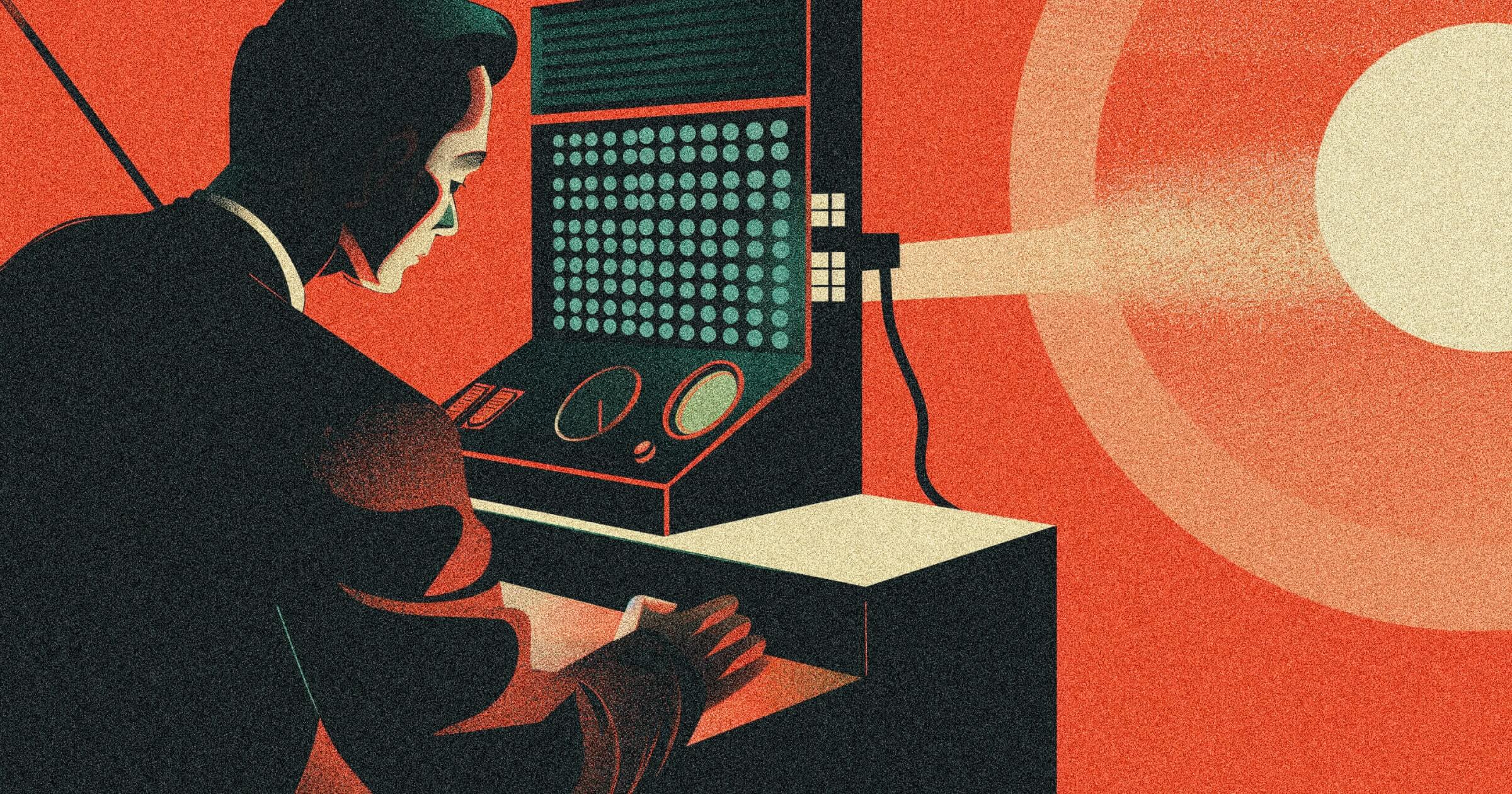
As a concept and a dream, artificial intelligence predates rock ‘n’ roll by nearly a decade. Alan Turing, the mathematician and scientist who fathered modern computer science, came up with his Turing Test in 1950, five years before Elvis recorded “That’s Alright Mama.” Can a machine convince you that it’s human? That’s the test. When a computer can do that, said Turing, it will mean we have entered a new dispensation.
Artificial intelligence, which developed in fits and starts in the ’90s and aughts, exploded with the great advances in personal computers and microchips in the 2010s. And now, as the planet’s warming trends peak yet again, AI has made its big breakthrough.
It came via intuitive leap – rather than program computers to think, the engineers let the computers loose on the mountain of information accumulated over the decades by the internet and let the machines teach themselves how to think. By searching for and identifying patterns – speech patterns, say – then predicting what will come next.
These are the large language models that the AI tools use to draw pictures, give advice, and write poetry. As it turns out, this method of cognition is not so different from that used by humans. Recognition is akin to memory. Prediction is akin to creation. This explains the spooky resonance you get when dealing with generative AI. Anything that reasons seems alive. Anything alive suffers and fears death.
A void is filled
Another important date: November 30, 2022. That’s when ChatGPT was released by Open AI. It was almost exactly 71 years after Kennedy’s assassination, which played its own part in ushering in the new era. JFK was killed less than three months before the Beatles arrived in New York. America had mourned through Fall and then, by Winter, was ready to twist and shout.
Open AI has arrived in the wake of another great trauma, the Covid pandemic, from which the populace emerged in search of the next new thing.
And now here is something just as revolutionary as the Beatles. ChatGPT, a generative system, actually seems to pass the Turing test. You can talk to it, query and confide, and hardly know that you’re dealing with what amounts to an alien intelligence.
It’s a second British invasion – Alan Turing was born in London – that, in some ways, mirrors the first. Whereas everyone had a favorite Beatle – Ringo for the odd, Paul for the besotted, George for the soulful, John for the ironic – everyone will have a favorite AI program. ChatGPT4 for the traditionalist. Starry AI for the artistic. Socratic for those with homework due. Sora for the filmmaker.
It’s instructive to consider other similarities between these two great invasions. The first remade our culture. The second may well redefine our sense of what it means to be human.
One. The kids get it even when the adults don’t. As those kids make the new thing part of their everyday lives, the adults, who may at first resist, will be forced to learn from their children, completing the revolution.
Two. Though it seems like the tech is cheap and available to everyone, it is in fact controlled by a handful of companies whose shareholders will be enriched by your addiction, accruing tremendous power. What once belonged to the Warner Bros will belong to Sam Altman.
Three. The content of the new medium is not new at all. Whereas the Beatles copied the Chicago blues masters, Elvis, Buddy Holly and the girl groups, AI generators copy everything on the internet. In the process of copying, the Beatles could not help but reinterpret and change the models, creating something new. Ditto AI, which, in predicting and condensing (and hallucinating), creates something new in the amalgamation.
Four. The old doomsayers thought the success of the Beatles meant the overthrow of ancient codes and traditions, hence the end of the world. The new doomsayers believe AI will reach a singularity, a point at which the machines, having become smarter than their creators, will begin to rewrite their own code, setting off a regime of self-improvement that quickly leaves humanity behind. And since the doomsayers were sort of right about the Beatles – their arrival really did mark the death of the old world – the smart money is on the triumph of the machines. Of course, computers still can’t cry, make a decent joke, or write a song as good as “Yesterday.” Don’t count humanity out too soon.
In 1964, the Beatles spoke to the entire culture. Almost nothing can do that anymore. We have become a society of niches, micro-trends, target markets. Not even pro football, not even the World Cup, not even Caitlin Clark, can do it like the Beatles, who tuned everyone into the same frequency and had them all dancing to the same song.
If it can in fact happen again, if we can get everyone caught in the same excitement, it won’t be a song or a band but a technology, something generated by an algorithm or perhaps the algorithm itself.
Rich Cohen is the author of several New York Times bestsellers, a co-creator of the HBO series Vinyl, an Editor at Large at Air Mail, and a columnist at the Wall Street Journal. He has written for Rolling Stone, The New Yorker, The Atlantic, and Harper’s Magazine, among other publications. Most recently, Rich is the author of When the Game Was War: the NBAs Greatest Season.







